Ages and Stages - Baby Tristan is 3 months old!
My nephew Tristan
Early Signs of Teething
Teething is not a fun milestone for your baby or for you. Know the symptoms (don’t you love the extra drool?), so when Baby starts cutting her first tooth you’ll be able to identify why she’s so fussy. Calm her with these simple soothers that will ease the pain which leads to a happier baby.
Teething Symptoms
Teething is part of your baby's development, and it can be one of the most painful parts of her first year. Most babies get their first teeth around 6 months, but they might come anytime between 3 and 12 months of age. According to pediatrician Lori Walsh, M.D. from Children's Memorial Hospital in Chicago babies tend to become more oral at this age, constantly putting things in their mouths. It's a normal part of their development to start exploring different objects with their mouths. Some parent might mistake this for teething, but don't jump to conclusions just yet.
Drooling
Before a tooth emerges, your baby is going to start drooling -- a lot. This may be attributed to the teething process, but it's also caused by this oral stage of development. This excessive drooling can cause an uncomfortable red rash on his chin. To prevent this, pat his chin with a luke warm washcloth or towel throughout the day. Pediatricians also recommend putting petroleum jelly on his chin to help ease the rash.
Teething Toys
Although teething hurts, there are many things to try before turning to medicine. Teething rings are popular toys for babies to chew on, as well as plush toys that are crunchy on the inside.
Babbling Baby
From babbles to words to sentences, here's everything you need to know about your baby's language development.
Baby Non-Talk
Long before your baby said her first word, she was already chatting you up. Establishing eye contact, imitating your facial expressions, babbling, cooing, gurgling, crying -- these are all forms of dialogue. So don't leave her hanging. Imitate her sounds or respond to her cries to let her know that you hear her and that she matters.
Talk Constantly to Your Child
You may feel silly saying to your child, "What's Daddy doing? He's opening the refrigerator. Oh, look. He took out the milk!" But we promise, the more you talk to your kid, the bigger her vocabulary will be. It also helps when you label things you pass on the street or throw into your cart at the grocery store.
And while it probably won't hurt to use your baby as a sounding board for your latest rant about your boss, it's better to focus on the things that actually interest her. If she's pointing at a cat but can't say the word, help her out by saying, "Kitty. What a soft, pretty kitty." The more you speak and expand on your baby's sounds, the more chance she has of picking up words.
Speaking to Baby
Those short sentences, that high-pitched voice: You know you do it! Even older children talk this way to younger kids. But never fear, there's a method to themadness. Speaking in a higher pitch helps gain baby's attention, and the simple sentences ensure that she'll be better able to understand what you're saying.
Have a great week!
The information that is in this post was found at:
baby,babies,new mommy's,sleep,learn ,teething,milestones













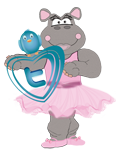

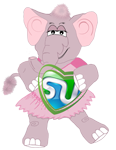

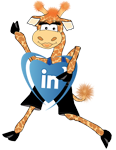
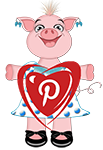
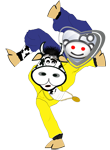




No comments:
Post a Comment